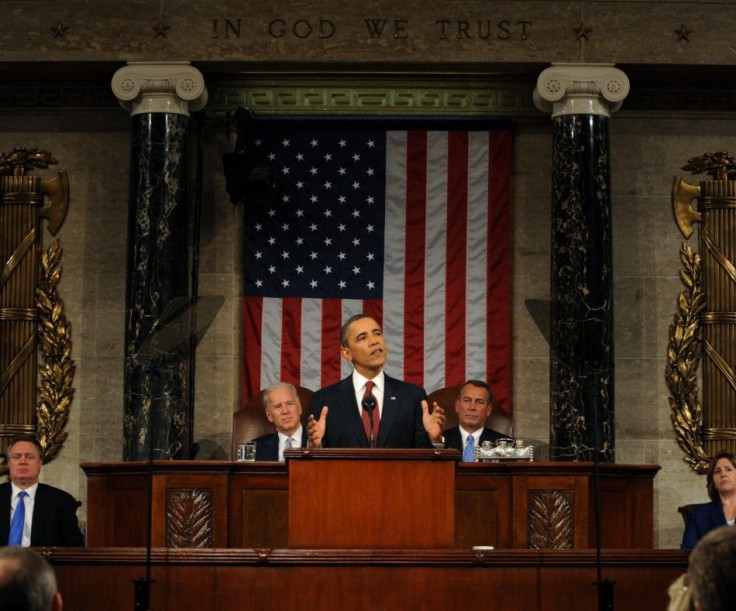China Responds To Obama's State Of The Union Address By Suggesting Strengthened Ties

As many in the United States watched President Obama's State of the Union address, the first of his second term, China was watching, too.
China’s state-run news outlet and government mouthpiece Global Times posted an editorial in response to Obama’s speech, which had focused mostly on U.S. domestic policy rather than foreign relations. But it was U.S. domestic policy, specifically U.S. economic policy, that interested the Chinese author or authors of the editorial most.
The article, titled “Stronger US-China Economic Ties Would Make Obama’s Job Easier,” outlined how the current relationship between the world’s two biggest economies can help the U.S. solve its fiscal issues and keep China’s economy robust.
“By forging stronger economic ties with China in the next four years, his chance of success to fulfill his domestic promises would be boosted,” the editorial said.
“The logic here is simple and clear, for the US and China are so economically interwoven with each other that the economic well-being of either side would inevitably affect the other. As they are already each other's second-largest trading partner, neither economy can remain intact while the other is in a deep mess,” it continued.
According to Bloomberg News, last year China and the U.S. accounted for a third of the world's total economy. Although the two nations have bumped heads on their shared political path in recent years as the U.S. increased its military presence in the Pacific, the trade relationship benefits the two nations significantly.
The U.S. was China’s largest export market last year, and China has been among America’s fastest-growing export markets over the past ten years as it continues to buy an increasing amount of U.S. goods.
“This is good news for Obama, whose trade agenda calls for doubling U.S. exports in the next five years to create two million jobs,” the editorial said.
According to research by the U.S.-China Business Council, 3 million American jobs were created as a result of increasing U.S. exports to China between 2001 and 2010.
However, relations between the two nations continue to face obstacles.
“U.S. policymakers need to avoid various obstructions such as trade protectionism, investment xenophobia, currency warmongering and Cold War mentality, which is evident in Washington’s latest decision to impose sanctions on Chinese firms,” the editorial stated.
Here, the editorial refers to new sanctions against four Chinese companies and one individual that were designed to punish them for doing business with Iran, which has been sanctioned by the UN. Washington released a statement earlier this week saying that the four companies violated the Iran, North Korea and Syria Nonproliferation Act (INKSNA).
The Chinese Foreign Ministry responded by claiming that China has strictly complied with international non-proliferation laws and has moderated exports accordingly.
The editorial went on to say that the U.S. should consider its relationship with China as a long-term asset instead of “shortchanging” it for political reasons.
“The prosperity of the world, including China and the U.S., beckons (sic) on stronger ties between the world’s two largest economies," the editorial said. "Therefore, building on past efforts and further advancing that relationship would be a wise choice for Obama as he presses ahead with his second-term agenda.”
© Copyright IBTimes 2024. All rights reserved.












